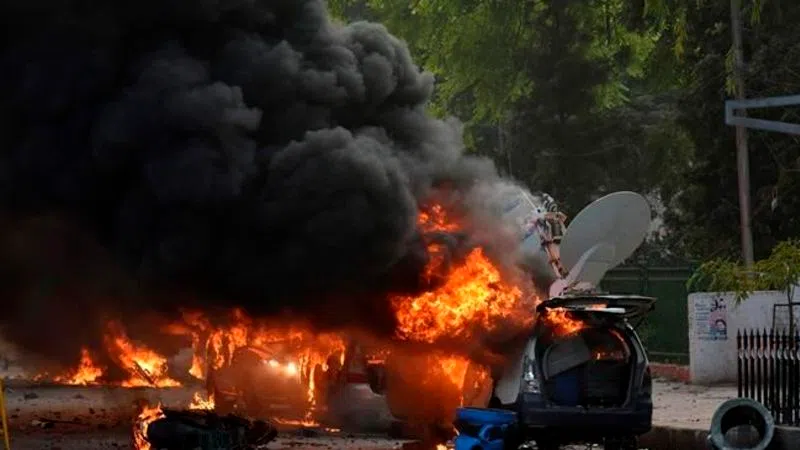
Indian police ban protests amid citizenship law outrage
NEW DELHI — Police detained several hundred protesters in some of India’s biggest cities Thursday as they defied bans on assembly that authorities imposed to stop widespread demonstrations against a new citizenship law that opponents say threatens the country’s secular democracy.
Protests raged around the country despite the bans as opposition widened to the law, which excludes Muslims. The legislation has sparked anger at what many see as the government’s push to bring India closer to a Hindu state.
Authorities erected road blocks and disrupted internet and phone services, including in parts of New Delhi, and tightened restrictions on protesters in the northeastern border state of Assam, which is where the protests began last week.
A curfew was imposed in parts of Mangalore, a city in southern Karnataka state, after police fired warning shots and used tear gas and batons to disperse a large group of protesters, the New Delhi Television news channel said.
